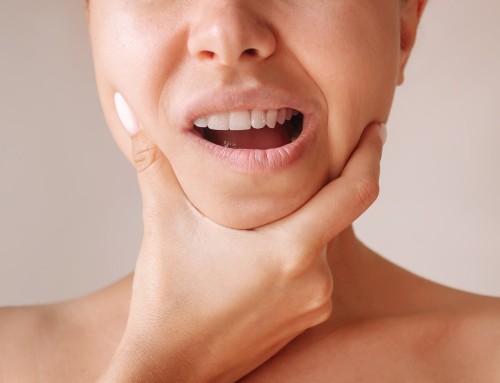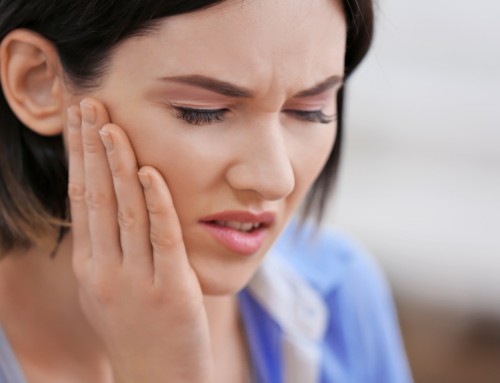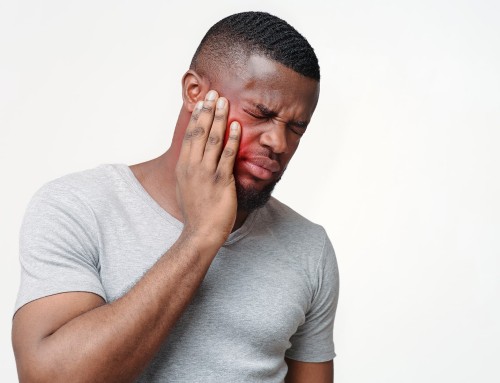If you are suffering from neck pain, it can make it hard to get through your day. Everything you do–working at the computer, doing any type of exercise, manual labor, even just standing still–can be painful. Finding good treatment for your neck pain depends on tracking down the cause of the pain. Many people with neck pain end up dependent on pain medication because they never find effective long-term treatment. This may be because many doctors overlook the role of temporomandibular joint disorders (sometimes called TMJ or TMD).
However, at Rochester Advanced Dentistry, we want to help people get effective treatment based on the cause of their pain or dysfunction. Check out these common causes of neck pain. If you think TMJ is one of the more likely causes of your neck pain, let one of our Detroit TMJ dentists help.
TMJ
TMJ is a common cause of neck pain. In part, that’s because TMJ is relatively common in the population, affecting from 5% to 12% of Americans. This condition tends to affect more women than men. Women are at an even higher risk if they are using hormonal birth control or taking hormone supplements.
TMJ is a group of jaw disorders that affect the joints, muscles, nerves, and more of the jaw system. The three main types of TMJ are:
- Myofascial pain disorder (MPD)
- Disc displacement (DD)
- Degenerative joint disease (DJD)
Myofascial pain disorder is the most common type of TMJ. It occurs when an imbalance in the jaw system causes strain in the jaw muscles. As a result of the strain, the jaw muscles experience pain. As the jaw muscles strive to restore balance, they can cause damage to the rest of the jaw system, including the teeth, bones, joints, and more.
In disc displacement, the cushioning disc slips out from between the two bones in the joint (the temporal bone of the skull and the mandible). This causes irregular motion of the jaw joint, accompanied by jaw sounds, and potentially jaw pain. Eventually, this can lead to a locked jaw.
DJD occurs when the jaw joints develop arthritis. This can include osteoarthritis linked to age or autoimmune disorders like rheumatoid arthritis or psoriatic arthritis. The joints might experience pain, limited function, joint sounds, and, eventually, a locked jaw.
TMJ causes neck pain because the muscles of the jaw and the neck work together. When one is dealing with dysfunction, it demands support from the other.
Neck pain is one of the most common TMJ symptoms. About 70% of people with TMJ experience neck pain.
Muscle Strain
The neck muscles work hard to support the head. The head weighs 11 pounds or more, and the neck muscles have to support it by holding it only at one end.
Neck strain increases significantly when the head leans forward. When the head is resting square on the spine, the spine takes much of the weight. However, as the head leans forward to do tasks like working on the computer, consulting the phone, or even reading a book, the head tilts forward, and the neck has to work harder to support it. Tilting your head forward just 15 degrees increases the strain more than twofold, and at 30 degrees, the neck has to work four times harder to support your head.
Bad posture, especially when working at a computer or using your smartphone, can significantly increase your risk of muscle strain.
Injuries
The neck is highly susceptible to whiplash injury from automobile accidents. A whiplash injury occurs when the body is suddenly subjected to high acceleration that causes the neck to rapidly snap backward and/or forward. This strains the tissues of the neck, including the muscles, tendons, ligaments, nerves, and cushioning discs between the vertebrae.
Car accidents are the most common source of a whiplash injury, but any event that causes your neck to snap rapidly in one or more directions can cause whiplash.
Pain from this injury might not be felt immediately. It can develop from a few days to a few months later. If you have neck pain and you’ve experienced an accident of some type in the last year, this is a likely source.
Note that the jaw is also highly susceptible to whiplash injury. Sometimes neck symptoms from whiplash are slow to develop because it was the jaw that suffered the injury, then caused neck symptoms as a result of worsening TMJ.
Worn Joints
Age affects all the body’s joints, including the neck. As the body gets older, wear on the neck joints can create painful bone spurs that can limit your neck motion. In addition to standard wear on your neck joints, the progress of joint destruction can be increased by rheumatoid arthritis or osteoarthritis.
Nerve Compression
If you experience herniated discs or bone spurs in the neck, you might experience pressure on the nerves that leave your spinal column. This can often result in neck pain, but it might also cause tingling or numbness, and the effects can rage far beyond your neck.
Relief from Neck Pain in Detroit
If you have neck pain, let the Detroit TMJ dentists at Rochester Advanced Dentistry help. We can track down the likely source of your neck pain and either offer a helpful treatment or refer you to someone who can. A TMJ dentist is a good first stop because even if we can’t help, we can eliminate one of the most common causes that your doctor won’t know about. Then your doctor can help you track down the other likely causes.
Please call (248) 923-4155 or use our online form to request an appointment at Rochester Advanced Dentistry, serving the Detroit area from our location near Rochester Municipal Park.




